A number of our clients have asked us to review the Brexit impact on the UK Irish Common Travel Area following the UK’s departure from the EU. We set out the key characteristics and distinguishing points here.
Common Travel Area
Following Brexit, the Common Travel Area (CTA) will become the basis upon which the capacities of UK citizens living and working in Ireland and Irish citizens living and working in the UK are defined. The CTA arrangement that exists between Ireland and the UK pre-dates both countries’ membership of the EU and will continue to operate subsequent to the UK’s EU departure. The CTA is the commonly used term for a variety of rights which can be exercised by citizens of Ireland and the United Kingdom (UK). It includes more than the basic right to travel freely between both countries. Rights include access to employment, healthcare, all levels of education, and social benefits on the same basis as citizens of the other State, as well as the right to vote in local and national parliamentary elections.
When the Common Travel Area arrangement began 1922, it was not contained in any legislation. It was an understanding between Ireland and the UK based on common history and the difficulties applying immigration controls because of the shared border. Over time, some of the rights came to be included in different pieces of legislation in both Ireland and the UK.
While the Common Travel Area is recognized under the Treaty of Amsterdam, it is not dependent on the European Union and the continuing Union membership of both countries.
On 8 May 2019, the Irish and UK governments signed a Memorandum of Understanding reaffirming the Common Travel Area and identifying the rights and privileges of Irish and UK citizens within the CTA. It also reaffirms the commitment to maintain the CTA following Brexit. The MOU sets out in separate headers the maintained rights of UK and Irish citizens in both jurisdictions, specifically: movement, residence, work, access to health care, social protection, education, voting. Both parties are committed to maintaining these current standards in any future arrangements.
The Common Travel Area does not relate to goods or customs issues. The present movement of goods, the absence of customs posts on the border between Ireland and Northern Ireland, and the absence of customs duties between the UK and Ireland comes from both countries’ membership of the European Union. Depending on the UK’s mode of departure from the Union these customs related activities will change.
The Withdrawal of the United Kingdom from the European Union (Consequential Provisions) Act 2019 places many of the Common Travel Area rights in legislation for the first time, particularly in the event of a no-deal Brexit. The Act empowers the relevant ministers to legislate in the areas of providing equal access to healthcare and social welfare. In essence therefore, subsequent to the UK’s withdrawal from the EU the core government messages are “steady as she goes” where the CTA is concerned.
Life has changed greatly since 1922. Societal experience of a massive expansion of global migration during the 20th and 21st centuries has to be addressed. In a modern context it is clearly necessary to address the status and circumstances of non EU nationals who may be the spouses of UK and Irish citizens present in both jurisdictions. The Irish Department of Justice / INIS is working currently to establish administrative scheme that will consolidate the positions of the non EU/EEA spouses of UK nationals in Ireland.
Non-EEA family member of British citizens seeking EU Treaty Rights or analogous rights subsequent to the UK’s departure for the EU
Non EU family members of UK citizens are currently entitled to avail of the European Communities (Free Movement of Persons) Regulations 2015, and should have no concerns regarding continued residence in Ireland after 31 January 2020 or whichever date becomes relevant for UK departure purposes. In a no-deal scenario the non EU/EEA family members of UK citizens will no longer be subject to the provisions of the Free Movement Directive and the exercise of EU Treaty rights and entitlements. However, arrangements are being put in place for non-EU/EEA family members of British citizens who have been exercising Free Movement rights in Ireland up to date facilitate their transfer to domestic immigration arrangements to provide for their continued residence in the State. Insofar as is possible, the objective is to retain similar rights for non EU/EEA family members of a UK citizen would have enjoyed as a family member of an EU national including access to the labour market. The precise contours of any proposed administrative schemes are not generally published at the time of writing but it can be assumed that these will operate within domestic Irish immigration provisions.
In the event that there is a deal, then the provisions of the Withdrawal Agreement on Citizens Rights will apply to the circumstances of UK citizens and their families in Ireland.
We note that this situation is highly fluid politically / diplomatically. However, given the degree of interconnection that exists between the CTA jurisdictions there has been some concerted effort to fix securely the rights of Irish / UK citizens in these territories. Where necessary solutions are being set up in domestic legislation should there be deficits either as a result of a no deal scenario or within the contours of an eventual withdrawal agreement (whatever that may be).
Person’s holding UK visas or Residence Permits
Citizens of countries whose nationals need a visa to enter Ireland and who hold a valid UK visa or resident permit may need a visa to travel to Ireland. The Short Stay Visa Waiver Program allows nationals of certain designated countries who have a short term UK visa to come to Ireland without the need for a separate Irish visa. This program has been extended to October 2021.
The British Irish Visa scheme allows visitors for China and from India a capacity to travel freely within the CTA (excluding the Channel Islands and the Isle of Man) using either an Irish or UK visa.
This is an evolving situation. We will review following the UK election as a change of UK government will likely impact on UK EU negotiations and the contours of a Withdrawal Agreement. We would anticipate that the CTA would remain in its current form.
Please contact Actus if you need further guidance in this or indeed in relation to Irish immigration and Employment Permit questions that you may have. We are delighted to assist.
Email: [email protected] // [email protected]
Phone: +35318-20468

